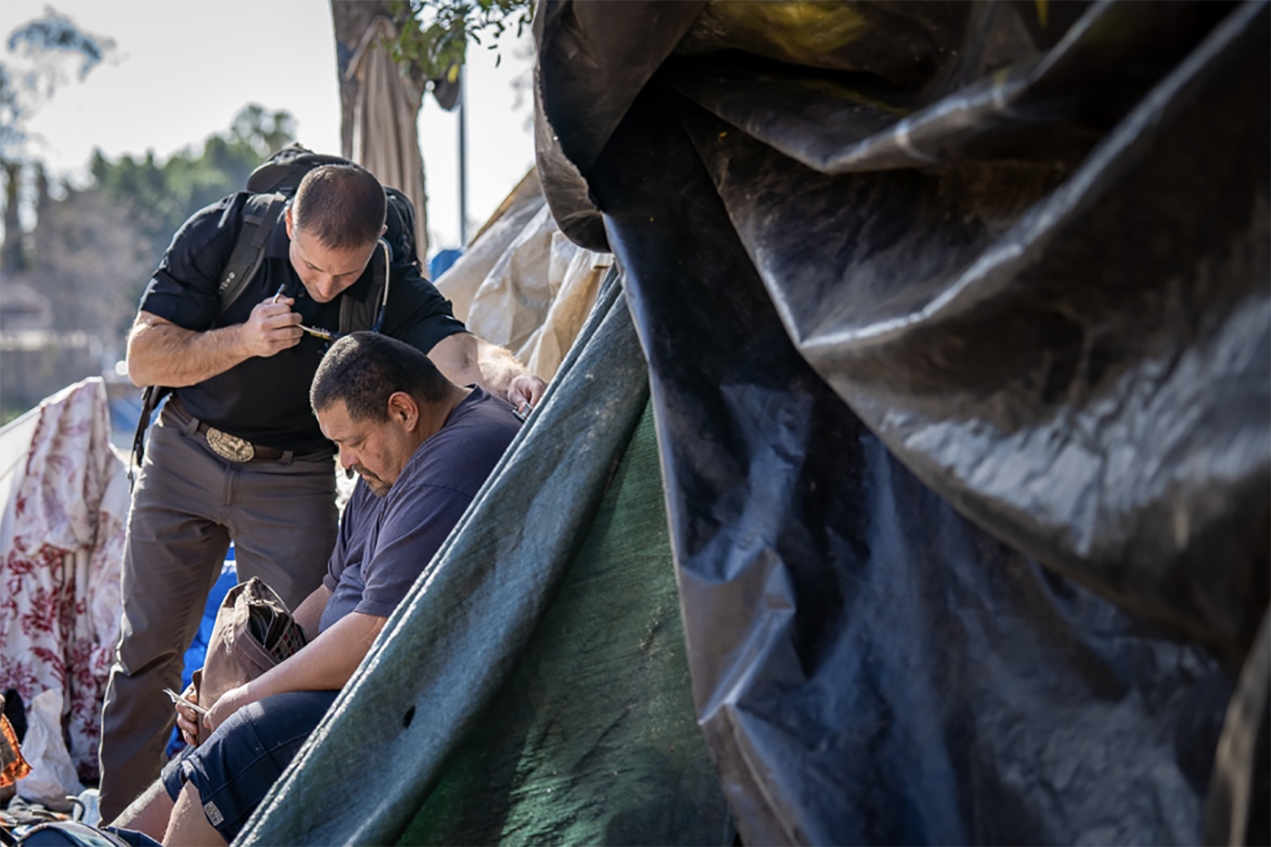On Feb. 1, the Street Medicine Act (AB369) was introduced to the California legislature. It is focused on increasing access to health and social services for those experiencing homelessness in bringing them into the existing healthcare infrastructure. Assembly Bill 369, proposed by Assemblymember Sydney Kamlager (District 54), seeks to remove barriers to care by requiring the Department of Healthcare Services to add street medicine as a Medi-Cal benefit.
In California, more than 151,000 people are experiencing homelessness and in Los Angeles County alone, almost 66,000 people are homeless – higher than any city in the country. For those that are experiencing homelessness, street medicine provides direct, comprehensive care to those living on the street and under bridges, as those experiencing homelessness often suffer from poorer health, on average have life expectancies 30 years shorter than their housed-counterparts and less access to preventive, primary and specialty health services. This has only been exacerbated by the COVID-19 pandemic.
Concerns for basic survival needs, transportation, lack of a mailing address, lack of ID and mental illness are some of the most significant barriers that keep this vulnerable population from accessing care through the traditional healthcare model. In integrating street medicine into Medi-Cal, those experiencing homelessness can get direct access to preventive, primary care services. Without primary care, those experiencing homelessness end up in hospital emergency rooms with multiple, untreated and advanced health issues. It is calculated that they then have 740% more hospital days at 170% greater cost per day than those who are housed, and state Medi-Cal pays the bill.
AB369 is sponsored by USC, the Keck School of Medicine of USC and the Street Medicine Institute and currently is seeking letters of support to send to the Chair of the Assembly Health Committee, in addition to constituents advocating to their representatives to co-author the bill.
“Advocating for our patients to have greater access and support in the healthcare system ensures that we are pursuing care for all — especially our most vulnerable neighbors,” shared Director of Keck Street Medicine Brett Feldman, MSPAS, PA-C. “On behalf of the street medicine community, which includes more than 25 programs in the state of California, thank you for your support.”


